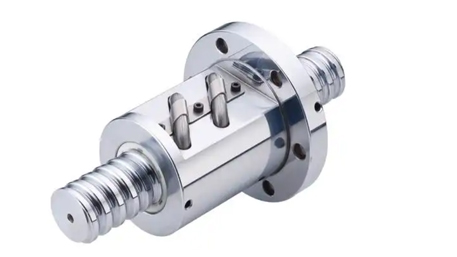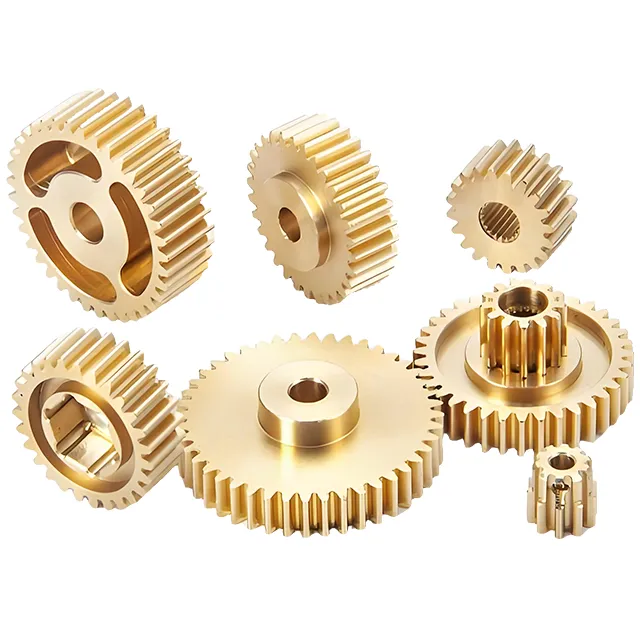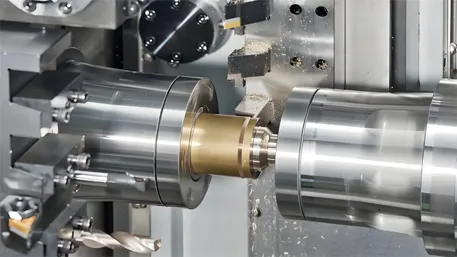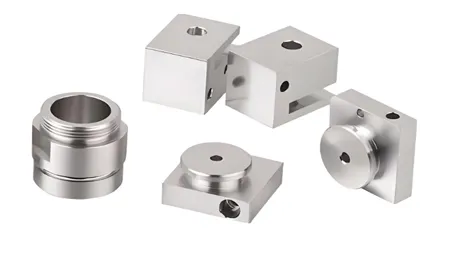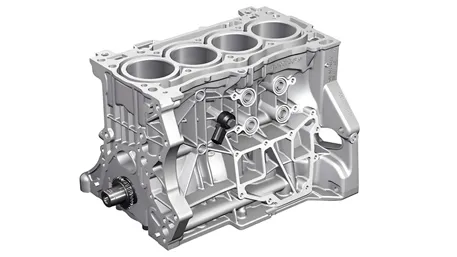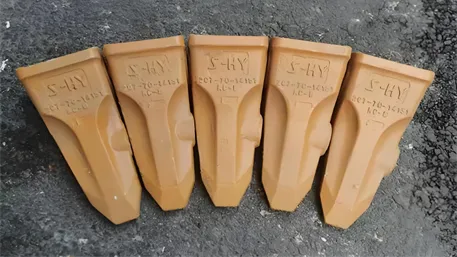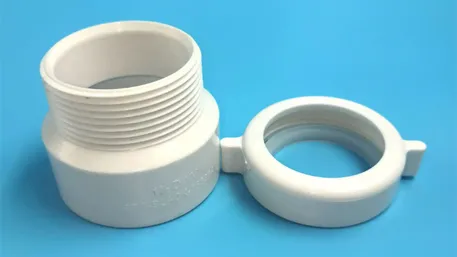In the intricate world of motion control systems, ball screw assemblies stand as critical components, enabling precise linear movement in a vast array of applications. From high – speed CNC machining centers and robotics to medical equipment and aerospace systems, the demand for high – performance, customized ball screw parts has never been greater. Custom CNC (Computer Numerical Control) machining has emerged as the leading manufacturing method for producing these essential components, offering unparalleled precision, flexibility, and quality. This article delves into the technical capabilities, customization process, material selection, quality control, and industry applications of custom CNC ball screw assembly parts.
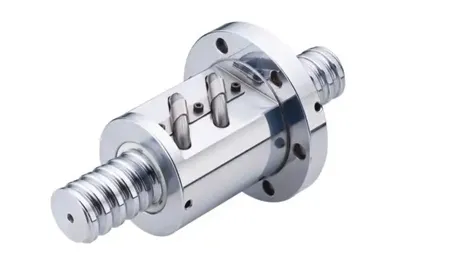
I. Technical Prowess: Setting New Standards in Precision Machining
(A) Unrivaled Dimensional Accuracy
CNC machining systems are engineered to achieve extraordinary dimensional accuracy. With positioning accuracy reaching ±0.002mm and repeat positioning accuracy of ±0.005mm, we can fabricate ball screw shafts, nuts, and other components with extremely tight tolerances. For example, when manufacturing ball screw shafts for high – precision machine tools, the straightness of the shaft can be maintained within ±0.002mm per 300mm of length. This level of accuracy is crucial for ensuring smooth, consistent linear motion, minimizing backlash, and enhancing the overall performance of the motion control system.
(B) Complex Geometry Machining
Five – axis CNC machining technology empowers us to create ball screw parts with complex geometries. Whether it’s ball screw nuts with intricate internal raceways, custom – designed end – fittings, or shafts with unique thread profiles, the five – axis system can execute these designs in a single setup. Compared to traditional machining methods, which often require multiple setups and are more prone to errors, five – axis CNC machining reduces setup – related errors from ±0.02mm to within ±0.005mm. Moreover, it boosts production efficiency by over 50%, significantly shortening the lead time for custom ball screw parts.
(C) Advanced Process Optimization
During the machining of ball screw parts, challenges such as material deformation, surface finish, and thread quality need to be overcome. We deploy a comprehensive set of advanced techniques to address these challenges. By carefully selecting cutting parameters, optimizing toolpaths, and implementing real – time monitoring and control systems, we can minimize material deformation. Additionally, the use of high – speed machining and advanced finishing processes, such as super – finishing and lapping, results in ball screw parts with a superior surface finish. A smooth surface finish reduces friction between the ball and the raceway, improving the efficiency and lifespan of the ball screw assembly.
II. End – to – End Customization: Tailoring Parts to Your Exact Requirements
(A) In – Depth Requirement Analysis and Design Conceptualization
When you approach us with your ball screw part requirements, our experienced engineering team engages in detailed discussions to understand your application, performance expectations, and design preferences. Using state – of – the – art CAD/CAM software, we generate multiple design concepts. We then collaborate closely with you, refining the designs until they perfectly align with your vision. Whether you need a standard ball screw part with a unique modification or a completely new design for a specialized application, we have the expertise to bring your ideas to life.
(B) Strategic Material Selection and Cost Analysis
Based on the finalized design, we recommend the most suitable materials for your ball screw parts. We consider factors such as load – bearing capacity, speed requirements, corrosion resistance, and cost – effectiveness. For high – load applications, we might recommend alloy steels like 4140 or 4340, which offer excellent strength and wear resistance. For applications where corrosion resistance is crucial, such as in marine or medical environments, stainless steels like 304 or 316L are ideal. Simultaneously, we conduct a detailed cost analysis, factoring in material costs, machining complexity, and production volume, to provide you with a transparent and competitive quote.
(C) Precision Manufacturing and Order Tracking
Once you approve the design and quote, production commences. You can monitor the progress of your order in real – time through our dedicated online tracking platform. Our skilled technicians adhere to strict manufacturing standards, using advanced CNC machines to produce ball screw parts that meet the highest quality benchmarks. We keep you informed at every stage of the production process, from raw material procurement to the final machining operations.
(D) Rigorous Quality Assurance and Timely Delivery
After production, each ball screw part undergoes a rigorous quality inspection. Only parts that meet our exacting standards are shipped to you. We perform dimensional inspections using coordinate measuring machines (CMMs) to ensure that all critical dimensions are within ±0.002mm. Surface finish measurements are also taken to ensure that the surface meets the required roughness specifications. In addition, we conduct mechanical and performance tests, such as torque testing and fatigue testing, to validate the performance of the ball screw part. We also offer comprehensive after – sales support, addressing any concerns you may have during the product’s lifecycle.
III. Strategic Material Selection: Choosing the Right Material for the Job
(A) Alloy Steels: High – Strength and Durable
Alloy steels, such as 4140 and 4340, are popular choices for ball screw parts in high – load applications. 4140 steel contains alloying elements like chromium, molybdenum, and manganese, which enhance its strength and hardenability. After heat treatment, it can achieve a high hardness, making it highly resistant to wear and fatigue. With a tensile strength of up to 1030 MPa and a yield strength of around 860 MPa, 4140 alloy steel is suitable for ball screw shafts and nuts used in heavy – duty machine tools, industrial robots, and aerospace equipment.
(B) Stainless Steels: Corrosion – Resistant and Reliable
Stainless steels, especially grades like 304 and 316L, are ideal for applications where corrosion resistance is essential. 304 stainless steel offers good general corrosion resistance and is commonly used in applications where the environment is not highly corrosive. 316L stainless steel, on the other hand, contains molybdenum, which provides enhanced resistance to chloride – induced corrosion. It has a tensile strength of ≥485 MPa and a yield strength of ≥170 MPa. This makes it suitable for ball screw parts used in marine environments, medical equipment, and food processing machinery.
(C) Tool Steels: High – Hardness and Wear – Resistant
Tool steels, such as D2 and M2, are used in applications where extreme wear resistance and high hardness are required. D2 tool steel has a high carbon content and alloying elements like chromium, molybdenum, and vanadium, which give it excellent wear resistance. It can withstand high pressures and repeated impacts, making it suitable for ball screw nuts and other components that are subject to heavy wear. M2 tool steel, also known as high – speed steel, has a high tungsten and molybdenum content, which allows it to maintain its hardness at high temperatures. This makes it suitable for ball screw parts used in high – speed machining applications.
IV. Stringent Quality Control: Ensuring Top – Tier Ball Screw Parts
(A) Raw Material Inspection
All incoming raw materials for ball screw parts are subject to strict quality checks. We use spectroscopic analysis to verify the chemical composition of metals, ensuring that they meet the required standards. For example, when using 4140 alloy steel, we confirm that the chromium, molybdenum, and manganese contents are within the specified ranges. Additionally, hardness testing, tensile testing, and metallographic analysis are performed to ensure the material’s integrity.
(B) In – Process Monitoring
Throughout the manufacturing process, we employ statistical process control (SPC) techniques to monitor key manufacturing parameters. Regular sampling and data collection help us identify and correct any potential issues promptly. We monitor parameters such as cutting forces, spindle speeds, and feed rates during machining. If any parameter deviates from the set values, we can adjust the machining process in real – time to ensure consistent product quality.
(C) Final Product Validation
Before shipping, each ball screw part undergoes a comprehensive inspection. We use CMMs to verify dimensional accuracy, ensuring that all critical dimensions are within ±0.002mm. Surface roughness measurements are taken to ensure that the surface meets the required specifications. In addition, we conduct mechanical and performance tests, such as torque testing, fatigue testing, and running – in tests, to validate the performance of the ball screw part under real – world conditions. Only parts that pass all these tests are considered ready for delivery.
V. Diverse Industry Applications: Empowering Multiple Sectors
(A) Machine Tool Industry
In the machine tool industry, custom CNC ball screw parts are used in a wide range of equipment, including lathes, milling machines, and grinders. The high precision and durability of these parts ensure smooth, accurate linear motion, which is essential for achieving high – quality machining results. For example, in a high – speed CNC milling machine, a custom – designed ball screw assembly can provide precise positioning accuracy, allowing for the machining of complex parts with tight tolerances.
(B) Robotics
In the field of robotics, ball screw assemblies are used to convert rotational motion into linear motion, enabling robots to perform tasks with high precision. Custom CNC – machined ball screw parts can be designed to meet the specific requirements of different types of robots, such as industrial robots, collaborative robots, and medical robots. The high – speed and high – load capabilities of these parts make them suitable for applications where robots need to move heavy payloads or perform tasks at high speeds.
(C) Medical Equipment
In the medical equipment industry, ball screw assemblies are used in a variety of devices, such as surgical robots, X – ray machines, and MRI scanners. The high precision and reliability of custom CNC ball screw parts are crucial for ensuring the accurate operation of these devices. For example, in a surgical robot, a ball screw assembly with high – precision positioning capabilities can enable surgeons to perform minimally invasive procedures with greater accuracy and control.
(D) Aerospace
In the aerospace industry, ball screw assemblies are used in a wide range of applications, including aircraft landing gear systems, flight control surfaces, and engine thrust reversers. The high – strength and lightweight properties of custom CNC ball screw parts make them suitable for these applications, where reliability and performance are critical. For example, in an aircraft landing gear system, a custom – designed ball screw assembly can provide the necessary force to extend and retract the landing gear, while also ensuring smooth, reliable operation.
VI. Frequently Asked Questions (FAQ)
(A) What is the typical precision of custom CNC ball screw parts?
Our CNC machining can achieve a dimensional tolerance of ±0.002mm, ensuring that the ball screw parts are manufactured to the highest precision standards.
(B) How do I choose the right material for my ball screw parts?
The choice depends on your application’s requirements. For high – load applications, alloy steels like 4140 or 4340 are recommended. For corrosion – resistant applications, stainless steels such as 304 or 316L are ideal. If extreme wear resistance is required, tool steels like D2 or M2 can be considered.
(C) What is the lead time for custom ball screw parts?
Lead times vary depending on the complexity of the design and order quantity. Simple designs can be completed in 3 – 5 days, while more complex ones may take 7 – 10 days. Rush orders are available upon request.
(D) Can CNC machining handle complex ball screw part designs?
Absolutely. Our five – axis CNC machines can fabricate ball screw parts with intricate geometries, including unique thread profiles and internal raceways, meeting even the most demanding design requirements.
(E) How much does it cost to customize ball screw parts?
Costs are determined by factors such as material, design complexity, precision requirements, and order quantity. While small – batch customization may be relatively costly, economies of scale can significantly reduce per – unit costs for larger orders.
VII. Customer Testimonials
A leading machine tool manufacturer approached us to develop custom ball screw parts for their new line of high – precision milling machines. Our team used five – axis CNC machining to achieve the required precision of ±0.002mm. The ball screw parts not only met the strict quality standards of the machine tool industry but also improved the performance of the milling machines. As a result, the manufacturer was able to increase their market share and customer satisfaction.
A medical equipment company needed custom ball screw assemblies for their new surgical robot. We implemented advanced machining techniques and rigorous quality control measures to ensure that the ball screw assemblies met the highest medical standards. The customer reported a significant reduction in surgical errors and an improvement in patient outcomes, leading to increased product sales and brand reputation.
Reach Out Now for Your Custom CNC Ball Screw Parts!
Regardless of your industry or application, our team of experts is ready to collaborate with you. We offer a seamless end – to – end service, from design to delivery. Contact us today to discuss your project requirements and take the first step towards getting top – quality custom CNC ball screw parts.
